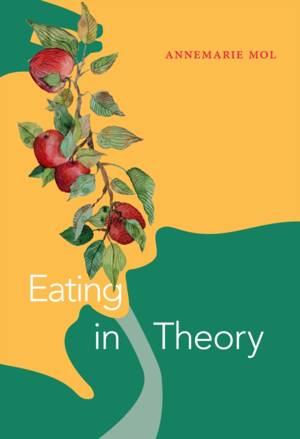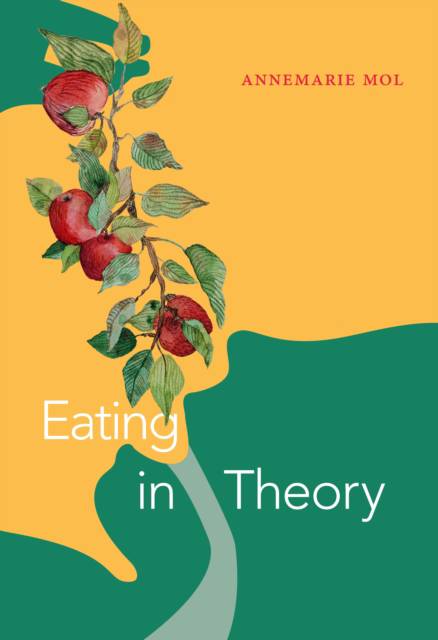
- Afhalen na 1 uur in een winkel met voorraad
- Gratis thuislevering in België vanaf € 30
- Ruim aanbod met 7 miljoen producten
- Afhalen na 1 uur in een winkel met voorraad
- Gratis thuislevering in België vanaf € 30
- Ruim aanbod met 7 miljoen producten
Zoeken
Omschrijving
As we taste, chew, swallow, digest, and excrete, our foods transform us, while our eating, in its turn, affects the wider earthly environment. In Eating in Theory Annemarie Mol takes inspiration from these transformative entanglements to rethink what it is to be human. Drawing on fieldwork at food conferences, research labs, health care facilities, restaurants, and her own kitchen table, Mol reassesses the work of authors such as Hannah Arendt, Maurice Merleau-Ponty, Hans Jonas, and Emmanuel Levinas. They celebrated the allegedly unique capability of humans to rise above their immediate bodily needs. Mol, by contrast, appreciates that as humans we share our fleshy substance with other living beings, whom we cultivate, cut into pieces, transport, prepare, and incorporate--and to whom we leave our excesses. This has far-reaching philosophical consequences. Taking human eating seriously suggests a reappraisal of being as transformative, knowing as entangling, doing as dispersed, and relating as a matter of inescapable dependence.
Specificaties
Betrokkenen
- Auteur(s):
- Uitgeverij:
Inhoud
- Aantal bladzijden:
- 208
- Taal:
- Engels
- Reeks:
Eigenschappen
- Productcode (EAN):
- 9781478010371
- Verschijningsdatum:
- 23/04/2021
- Uitvoering:
- Hardcover
- Formaat:
- Genaaid
- Afmetingen:
- 160 mm x 241 mm
- Gewicht:
- 408 g

Alleen bij Standaard Boekhandel
+ 310 punten op je klantenkaart van Standaard Boekhandel
Beoordelingen
We publiceren alleen reviews die voldoen aan de voorwaarden voor reviews. Bekijk onze voorwaarden voor reviews.











